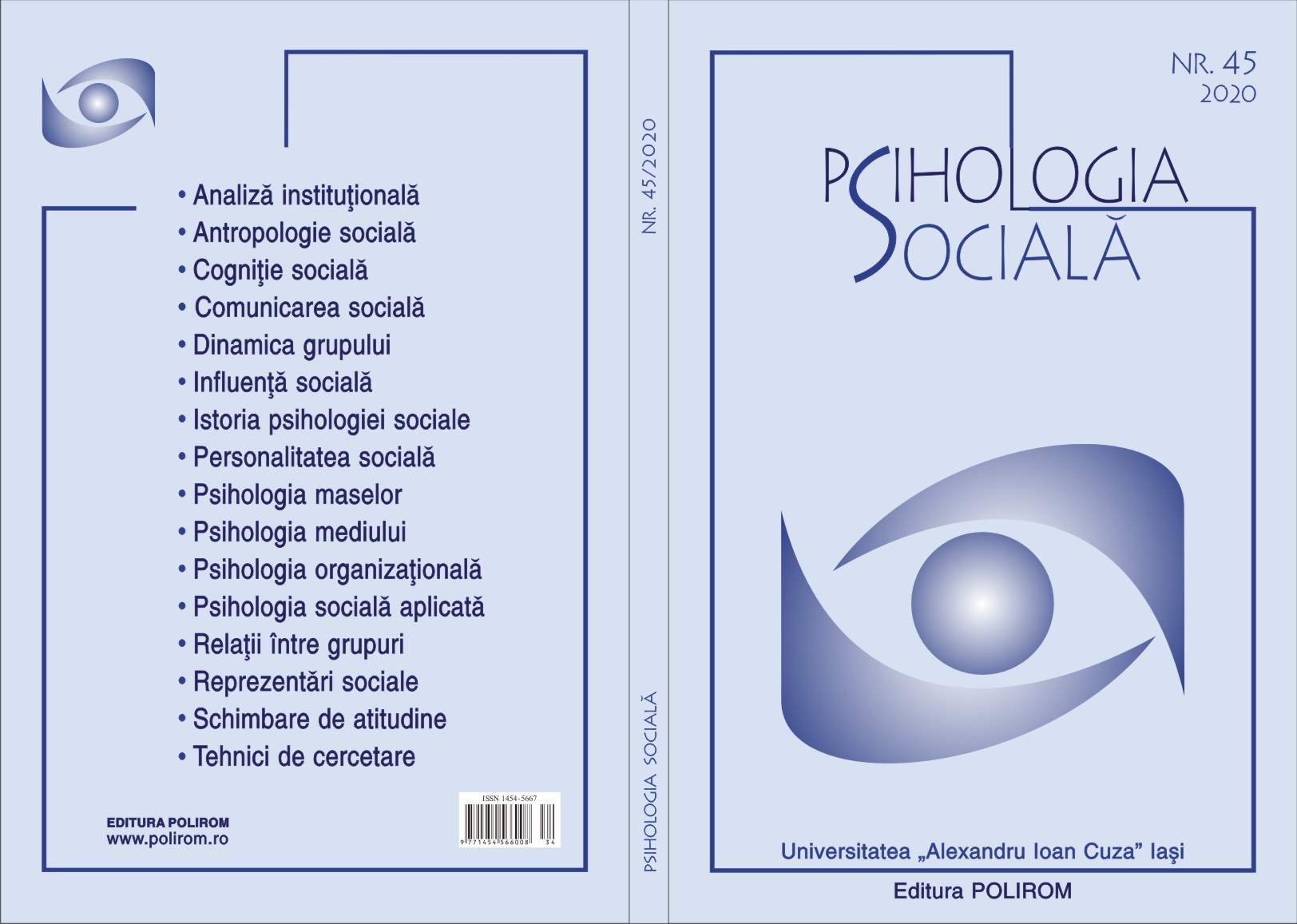Prospective posttraumatic growth following the COVID‑19 health crisis: Younger people consider more the probability of positive outcomes following the pandemic
Prospective posttraumatic growth following the COVID‑19 health crisis: Younger people consider more the probability of positive outcomes following the pandemic
Author(s): Alexandra Maftei, Andrei-Corneliu HolmanSubject(s): Social Sciences, Psychology, Social psychology and group interaction
Published by: EDITURA POLIROM S.A.
Keywords: pandemic; age; trauma; posttraumatic growth; positive outcomes; psychological response;
Summary/Abstract: In the current study we explored prospective posttraumatic growth outcomes four weeks following restrictive social measures imposed by the Romanian government (i.e., social distancing, self‑isolation, closing schools) in order to contain the novel coronavirus. Our cross‑sectional, mixed‑method study approach included a sample of 237 adults, aged 18 to 68 (M=28.63, SD=11.41, 77.6% females). Our main findings revealed that younger individuals were more likely to consider the possibility of positive outcomes following the pandemic, while older ones instead considered them improbable. The most favorable outcomes were anticipated within prospective environmental improvements (i.e., pollution reduction), followed by interpersonal relationship changes. Younger individuals were more likely to consider positive outcomes related to interpersonal relations, personal power, spiritual change, and pollution reduction. At the same time, older people were more likely to consider pandemic‑related positive outcomes in terms of new possibilities and appreciation of life. Results are discussed within the posttraumatic growth framework, emphasizing their importance in explaining people’s social and psychological responses to the COVID‑19 pandemic.
Journal: Psihologia socială
- Issue Year: 2/2020
- Issue No: 46
- Page Range: 135-143
- Page Count: 9
- Language: English
- Content File-PDF

